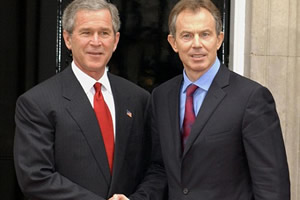Book Fair still relevant despite challenges

Beaven Tapureta Own Correspondent
Exhibitors at this year Zimbabwe International Book Fair have put weight behind the country’s premier book fair saying, despite current challenges, it remains a significant platform which provides them with an opportunity to interact with the general public. There was a low attendance during public days this year as compared to previous editions and various exhibitors who spoke to this writer showed that they hoped for better things in the future.
While the two-day Indaba which sets in motion the book festival had much energy and substance, the public days were somehow prosaic.
Students drawn from different schools around the country and a few adult readers could be seen strolling and inquiring at various book exhibition stands. The children’s reading tent, run by the Harare City Library, the Live Literature Centre, and some few activities did breathe some life into the venue but by the stalls books lay on tables like placards yearning for continuous perusals from different hands which, unfortunately, were very few.
In different interviews, some exhibitors expressed their views on the causes of the low attendance, saying delayed consultation with stakeholders by the organisers and the impact of economic impasse as the main hurdle.
National information and publicity secretary of Zimbabwe Academic and non-fiction Authors (ZANA) Salachi Naidoo said low pre-book fair publicity is the reason why people were not visiting the Book Fair while exhibitors from the international community may have been discouraged by the global economic recession. However, she believed ZIBF remains an important platform.
“This year students have come in large numbers which shows that despite a low general turn out, ZIBF remains a solid platform for interaction and we want it to continue. Pre-book fair publicity wasn’t as vigorous as it used to be in the past years,” she said.
Masimba T Madondo who is the operations manager of Consultus Publishing Services, a local publishing house, echoed lack of event publicity and marketing as having contributed to the public disinterestedness about the book fair. Smaller, upcoming publishers and booksellers, he said, are the most affected.
“This venue is a very prominent area and the ZIBF brand is well known all over but we are not pulling the same number of people any more and that needs to be looked at by whoever is responsible. Maybe more collaboration need to be considered in the industry – small and big players should come together. The ZIBF is the space where we as exhibitors do our market research. This is where we get to talk to our customers. The Traders’ Day (on Wednesday) was fine because it was between us exhibitors. It allowed us to discuss among ourselves issues to do with discounts and supply chains, among others,” Madondo said.
Sushil Gupta, a representative of India-based Sunrise Publishers which has been exhibiting at the ZIBF for the past five years said the book business at the 2016 edition was very low mainly due to the low buying power which the general public has. As an importer of books, he also said duty of books was hampering business.
“I feel that in Africa, especially in Zimbabwe, there is a lot of potential but because of the economy, the situation is very bad,” he said.
The 40 percent duty which Government put on book imports, added Gupta, has a negative impact on the local book industry. He said Zimbabwe needs to maintain its high literacy status.
“Every Government promotes education and it’s my request to all the governments in the world is that education must be tax free so that people can afford to buy the books,” Gupta said.
Sunrise Publishers is a leading children’s book publisher and printer from India. The company imports educational books from India and distributes them to more than thirty countries around the world.
Another company from India, Model Educational Suppliers, also decried the high tax which Government effected on books.
“The turn-out wasn’t very good but at least we hope it will improve next year. However, as an importer of books, we feel that the duty on books is very high. Due to our economy, most people don’t have money and the high tax means that we have no option but to raise the price of books and that makes them unaffordable to our customers,” said Jambo Bakapitani, sales representative of Model Educational Suppliers.
Edwin Madziwo, representing Zimbabwe Universities Library Consortium (ZULC), said although the economy may have hampered a vibrant 2016 book fair exhibition days, the organisers should play a bigger role in marketing the event and approach exhibitors some months before the book fair.
“Generally, this year’s book fair, in terms of the exhibitors, is very low. I could probably point to the prevailing economic conditions but I also think that ZIBF should really play a major role in planning for this event.
“They need to approach exhibitors in time. For instance, some exhibitors are saying they got to know that there is a book fair probably two months before and I feel it shows that the organisers need also to intensify the marketing of the event,” he said.
The ZIBF usually opens the gates to the public from Thursday to Saturday the last day. This year, the public days were from Thursday, July 28, to Saturday, July 30 while the Indaba conference happened on July 25 and 26. This year, the Young Persons Indaba was scrapped from the entire programme. Traders’ Day was held on Wednesday, July 27 and usually, on Friday and Saturday writers and related stakeholders meet for the literary evening and writers’ workshop respectively.









Comments